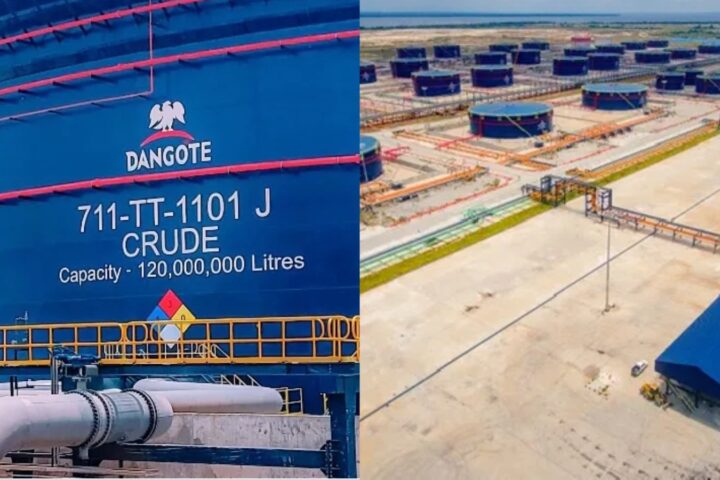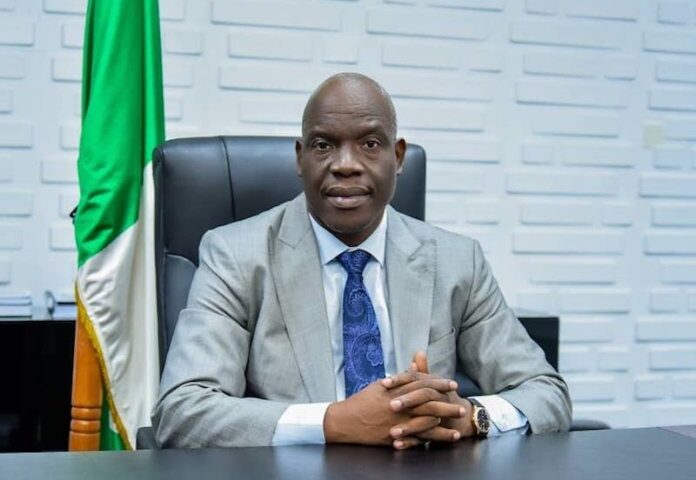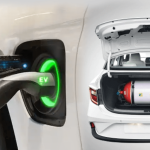As Nigeria seeks to navigate the challenges of rising fuel costs, environmental degradation, and the need for sustainable energy solutions, the adoption of Compressed Natural Gas (CNG) for vehicles has emerged as a viable alternative.
While the federal government plays a crucial role in national energy policies, subnational governments can significantly influence the local adoption of CNG through initiatives, incentives, and infrastructure development.
Join our WhatsApp ChannelIn recent months, Nigeria has faced escalating petrol prices, which have now crossed over ₦1,100 per liter at government-owned NNPC, following the total removal of the fuel subsidy in June 2023 and subsequent adjustments after the harmonization of foreign exchange.
Fuel subsidy, which cost the Nigerian government around ₦5 trillion annually, was implemented to stabilize fuel prices for consumers but ultimately strained the country’s finances. The removal of this fuel subsidy has led to increased transportation costs, thereby emphasizing the need for alternative fuel sources like CNG to provide relief to consumers and businesses alike.
While the federal government has taken the lead in charting a path for the adoption of CNG as an alternative energy source for vehicles, state and local governments also have important roles to play.
1. Policy Formulation and Support
Subnational governments worldwide have implemented policies to facilitate CNG adoption.
For instance, in California, USA, the state government has set ambitious clean air standards and incentives that encourage the use of CNG for public transportation and heavy-duty vehicles. California’s policies, including the Alternative and Renewable Fuel and Vehicle Technology Program, provide funding for CNG infrastructure development and vehicle incentives, leading to a substantial increase in CNG adoption, with CNG accounting for approximately 12% of the total fuel used in heavy-duty vehicles in the state.
READ ALSO: Gas Problem In Nigeria’s Electricity Sector
In Nigeria, state governments can adopt similar clean air policies tailored to local contexts, focusing on urban centers where pollution is a significant concern.
2. Incentives for Vehicle Conversion
Many countries have employed financial incentives to stimulate CNG adoption. In Argentina, the government introduced subsidies for converting vehicles to CNG, which has helped CNG account for approximately 20-25% of total vehicle fuel consumption. Local governments played a crucial role by providing additional incentives and support for CNG refueling infrastructure, making it easier for vehicle owners to transition from petrol and diesel.
In Nigeria, the federal government has initiated incentives for CNG adoption, including grants for infrastructure development and vehicle conversion programs. However, the costs for converting vehicles to CNG can range from ₦250,000 to ₦1 million depending on the vehicle type and the level of modification required. State governments could introduce additional grants or tax rebates to lower the burden on vehicle owners, especially targeting commercial operators who rely heavily on fuel for their businesses.
3. Infrastructure Development
The development of CNG refueling infrastructure is critical to its adoption. Pakistan has seen considerable success in expanding its CNG network, with state and local governments partnering with private investors to build a large number of CNG refueling stations. Currently, about 35-40% of vehicles in Pakistan operate on CNG, largely due to the extensive infrastructure established by both national and provincial governments.
In Nigeria, only a few CNG refueling stations exist, primarily in Lagos and Abuja and even the refueling station in Abuja recently experienced some queues largely due to gas supply issues or inadequate refuel infrastructure.
State governments should actively promote partnerships with private investors to establish a comprehensive network of CNG stations, focusing on high-traffic routes and urban areas to ensure accessibility.
4. Public Awareness and Education Campaigns
Public awareness is essential for the successful adoption of CNG. In India, several state governments have launched awareness campaigns to promote CNG as a cleaner alternative to diesel and petrol, particularly in urban areas suffering from severe air pollution.
By engaging citizens through workshops, advertisements, and community events, these campaigns have helped increase CNG utilization, especially in metropolitan cities where it accounts for around 15-20% of vehicle fuel use. In Nigeria, state governments could implement similar campaigns highlighting the cost benefits and environmental advantages of CNG, emphasizing its potential to reduce air pollution and improve public health.
5. Partnerships and Collaborations
Effective partnerships between government and private sectors have been instrumental in CNG adoption. China has collaborated with energy companies and local governments to promote the development of CNG infrastructure, leading to an increase in the use of CNG, particularly in buses and taxis.
Subnational governments facilitate these partnerships by providing regulatory support and financial incentives, contributing to the rise of CNG as a viable fuel option. In Nigeria, states could form alliances with private energy companies to drive infrastructure development and increase CNG availability.
6. Support for Public Transportation
Public transportation systems have seen significant CNG adoption due to proactive state government policies. In Brazil, state governments have been instrumental in converting public transport fleets to CNG, incentivizing bus companies to switch from diesel. This initiative has not only reduced emissions but also demonstrated the viability of CNG to private operators, leading to broader adoption throughout the transport sector.
In Nigeria, state governments can encourage public transportation companies to transition to CNG by providing subsidies for conversion and establishing exclusive CNG refueling stations for public transit.
7. Monitoring and Evaluation
Monitoring and evaluation frameworks have been critical for assessing the impact of CNG initiatives. In Germany, state governments regularly collect data on the performance of CNG vehicles and the success of CNG infrastructure projects.
By analyzing emissions reductions and user satisfaction, these governments can make informed decisions and adjustments to their policies, ensuring continuous improvement in CNG adoption strategies, thereby achieving the aim of reducing suffering amongst the people while protecting the environment simultaneously.
READ ALSO: Free CNG Conversion Centres Across Nigeria [See Full List]
The cost for converting a vehicle to CNG in Nigeria can range from ₦250,000 to ₦1 million depending on the vehicle type. The federal government has implemented incentives, such as grants for infrastructure development and vehicle conversion programs, to offset these costs. However, additional state-level financial assistance, tax incentives, or partnerships with financial institutions could further reduce these costs and encourage more vehicle owners to make the switch.
The adoption of Compressed Natural Gas (CNG) in Nigeria presents a significant opportunity to address rising fuel costs and environmental concerns.
Currently, with petrol prices reaching approximately ₦1,100 per liter and the government no longer subsidizing fuel, the economic burden on citizens and businesses has increased.
Subnational governments can play a vital role in facilitating this transition by formulating supportive policies, providing financial incentives, developing infrastructure, and raising public awareness.
READ ALSO: Fuel Price Hike Worsens Nigerian Travellers’ Nightmare
The successful experiences of countries like the United States, Argentina, Pakistan, Italy, India, China, Brazil, and Germany offer valuable lessons for Nigerian state governments.
By leveraging these insights and taking proactive measures, Nigeria can enhance energy security, improve air quality, and foster sustainable development through the widespread adoption of CNG.
With committed leadership, innovative strategies, and a focus on collaboration, Nigeria can move toward a cleaner, more sustainable energy future, beginning at the state and local levels.
Abdulrazaq Hamzat is an emerging thought leader in the energy industry and a peacebuilding professional. He can be reached at discus4now@gmail.com

![Free CNG Conversion Centres Across Nigeria [See Full List]](https://www.primebusiness.africa/wp-content/uploads/2024/07/CNG-Centre.jpg)















Follow Us